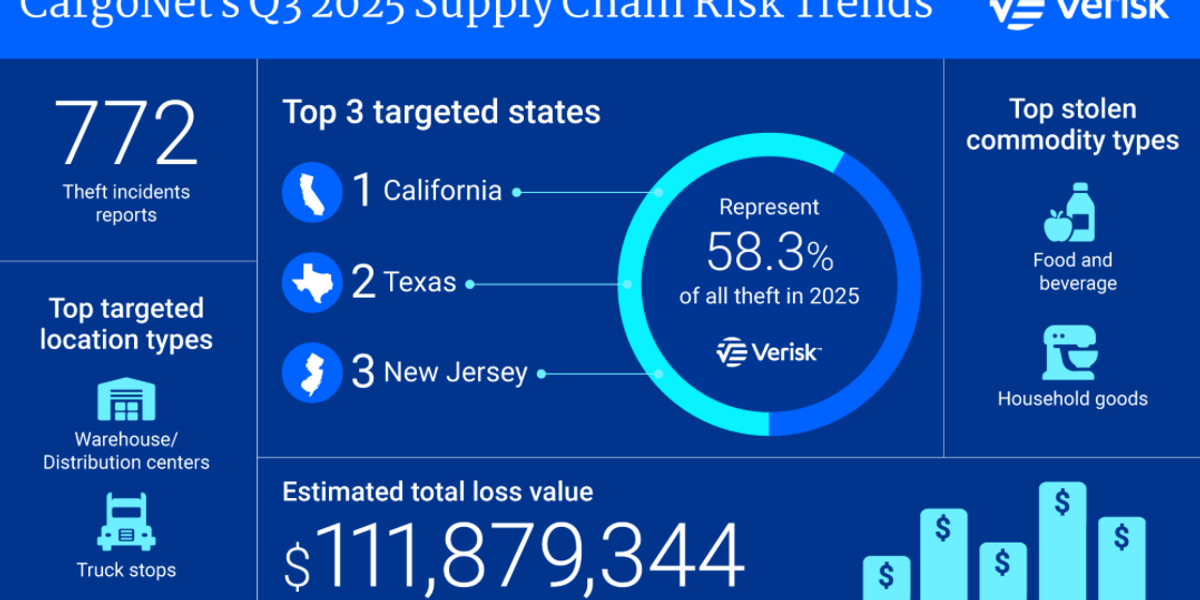Organized crime groups are driving a surge in high-value cargo theft across the U.S. and Canada by using social engineering techniques to learn the names and contact information of brokerage and carrier professionals, then redirecting legitimate shipments to nefarious destinations, according to theft prevention and recovery firm CargoNet.
The firm’s latest report shows a stabilizing theft landscape, evolving tactics among organized crime groups, and increased targeting of high-value and ultra-high-value goods, researchers said.
Specifically, CargoNet recorded 772 cargo theft events across the United States and Canada in Q3 2025—a modest 1% increase compared to Q3 2024 and a 10% decrease from Q2 2025.
But while incident volume remained relatively stable, the financial impact surged to record levels. The total value of stolen goods in Q3 2025 reached $111.88 million, driven by organized crime groups targeting high-value shipments of enterprise computer hardware, cryptocurrency mining equipment, and copper products. The average stolen shipment value doubled to $336,787, up from $168,448 in Q3 2024—clear evidence that cargo thieves are becoming more strategic in selecting targets.
And as the industry enters the final quarter of 2025, CargoNet anticipates that organized crime groups are in a transitional phase, adapting to the logistics industry’s latest anti-fraud tools.
For example, some groups are abandoning complex schemes—such as proof-of-delivery fraud and authority takeovers—in favor of simpler, more direct thefts of unattended, loaded trailers, especially in Southern California, the Bay Area, Phoenix, and Lake Tahoe.
But meanwhile, other groups are refining their fraud tactics to bypass security measures through social engineering tactics. These actors exploit a critical vulnerability: most anti-fraud tools focus on the shipment tender phase. So using sophisticated social engineering, criminals are now gathering intelligence on shipments already assigned to legitimate carriers. Once they identify the carrier, they impersonate company representatives to misdirect drivers.
Specifically, criminal groups are using social engineering techniques to obtain granular shipment details like: the specific brokerage handling the shipment, the assigned motor carrier, and critically, the names and contact information of individual points of contact at both the brokerage and carrier level. By using the correct names, company details, and shipment specifics, these criminals establish credibility that allowed them to redirect shipments to fraudulent addresses without ever being tendered the shipment.


